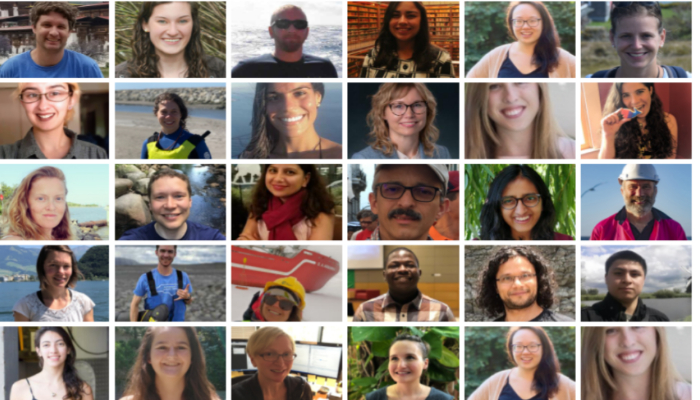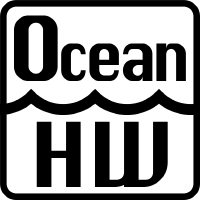
Back in August, I attended Oceanhackweek 2020. As an oceanographer by trade and free software nerd by heart, I loved the idea of an event that combined the two. I looked forward to learning from other oceanographers and coders, and perhaps giving something back to the free software community.
What is a hackweek/hackathon?
If you have yet to dip your toes in the wonderful world of free software, the concept of hacking may be alarming.
Aren’t hackers the bad guys in hoodies and masks trying to steal my bank details?
If this is the image that “hack” conjures in your mind, don’t be alarmed! Hacking is not a selfish, destructive criminal activity. In my own opinion, hacking is working creatively to build on existing tools and systems. Hacking commonly involves a strong co-operative element, often with people you have never met. Hacking is inventive, ingenious and fun. Think more hackspaces or hacker culture, and less Hollywood hacking of mainframes.
In a hackathon, you work with other like minded people to make cool stuff. This can be a brand new idea, picking up a neglected project, or adding functionality to an existing popular piece of software. There is often a strong focus on teamwork and peer learning/mentoring.
How about Oceanhackweek?
As the name suggest, Oceanhackweek (OHW) is an event specifically geared towards oceanographers of all stripes. You will encounter physical, chemical and biological oceanographers, ocean archivists, ocean-oriented civil servants, students, lecturers, self taught programmers and more. OHW is open to applicants from around the world. We had participants from 6 continents this year. The only requirements are that you have a reasonable grasp of a free software language (currently Python or R), and some prior experience with oceanography. For more info see the OHW FAQ for applicants.
OHW aims to fill the gap between the traditional teaching focused summer school and a pure working hackathon. To this end, OHW20 balanced 3 hours of teaching each day with free time for participants to work on a collaborative project of their choice, supported by expert instructors. This approach helped to avoid the zoom fatigue we have all experienced after a day full of video chat meetings. The taught sessions were real masterclasses in their topics, fast paced and information dense.
The real benefit of OHW20 for me was the collaborative project. I started work on a project to fetch glider data from ERRDAP repositories with simple Python calls. This was the first time I’ve taken part in a collaborative coding project and it was great. Collaborating via GitHub allows you to contribute by suggesting improvements, finding bugs, making tests, writing documentation or implementing new features.

Wordcloud constructed from the messages of commits made to OHW project during the week. See how it was made.
During OHW I felt like I was working with people I understood, on problems I cared about. I learned from disciplines I would have skipped at a conference: ecosystem modelling, machine learning, satellite oceanography. Much of the time, scientists in these disparate fields are grappling with the same issues I am. Where do I find data? How can I combine it? How should I process it? Where should I store it? These are common problems, OHW can help you discover and implement good solutions.
Our work in increasingly dependant on a stack of free software. We all need to work to make sure that the science we do is repeatable, replicable and reproducible. An event like OHW can supply us with the tools we need to do this and, more importantly, it empowers us to pick up those tools and get to work. If you’re still doubting if a hackweek is for you, stop. If you can use git and a scripting language, you can do this.
If you get the chance to attend a hackathon, grab that opportunity with both hands!
How to get into hacking?
You can follow OHW on twitter. You can find other opportunities to join hacks through projects like hacktoberfest. You can also contact the people who write the tools you use, help is always appreciated! The EGU geodynamics division has a hackathon now in its 7th year. Do you know of any other ocean hack events? Post them in the comments below!
Further Reading:
- oceanhackweek on GitHub
- Callum’s website
- Callum’s twitter
Edited by Elizabeth Siddle


